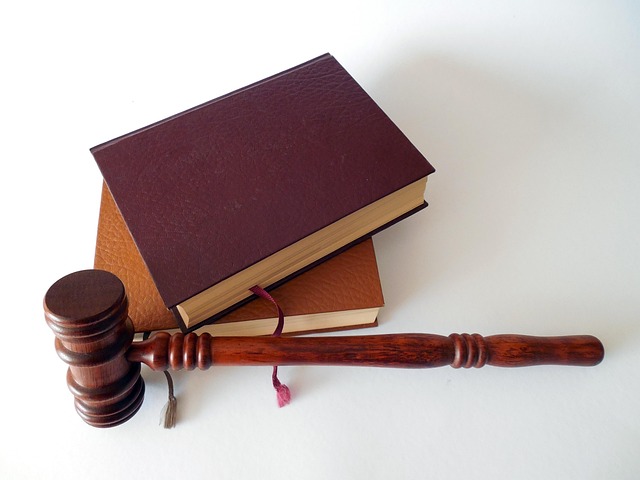The Importance of Due Process in Court is vital for achieving justice and fairness in criminal law. It guarantees defendants' rights to be heard, legal representation, and a fair trial, ensuring impartiality and protecting against arbitrary actions. This balance is crucial for maintaining public trust, especially in complex cases like terrorism, where the system must navigate rights and safety without compromising integrity. Legal representation through qualified attorneys further ensures just treatment, aligning with due process standards.
“Delve into the intricate world of criminal law, where the balance between individual rights and public safety is a delicate dance. This article explores foundational concepts, shedding light on the essence of understanding offenses, defenses, and the crucial role of due process in court.
We examine how fair trials are guaranteed through robust due process, and analyze the challenges in balancing justice. Additionally, we dissect the profound impact of legal representation on criminal cases, highlighting its significance in ensuring fairness and outcomes that reflect the importance of due process.”
- Understanding Criminal Law Basics: Offenses & Defenses
- The Role of Due Process: Ensuring Fair Trials
- Balancing Justice: Rights vs. Public Safety
- Impact of Legal Representation in Criminal Cases
Understanding Criminal Law Basics: Offenses & Defenses

In the realm of criminal law, understanding the basics is paramount for both legal professionals and those involved in high-stakes cases across the country. At its core, criminal law defines and punishes crimes, ensuring societal order and justice. The foundation of this legal framework lies in the concept of offenses and defenses, which are crucial elements in any court proceeding. Offenses refer to illegal actions or conduct that violates a specific criminal statute, such as theft, assault, or fraud. These actions carry predefined penalties, often involving fines, imprisonment, or both, depending on the severity and jurisdiction.
Defenses, on the other hand, are legal arguments or justifications presented by accused individuals to challenge the prosecution’s case. The Importance of Due Process in Court cannot be overstated; it ensures fairness and protects the rights of both corporate and individual clients. Effective defenses can mitigate punishment, exonerate the innocent, or reduce charges, demonstrating the intricate balance between upholding the law and ensuring that justice is served equitably across all sectors of society.
The Role of Due Process: Ensuring Fair Trials

The role of due process is paramount in ensuring fair trials within criminal law cases. It serves as a cornerstone, safeguarding individuals from arbitrary or unjust actions by the state. Due process guarantees the right to be heard, providing defendants with an opportunity to present their case and challenge evidence presented against them. This fundamental principle is crucial in maintaining public trust in the justice system, as it ensures that everyone, regardless of status or background, receives a complete and impartial assessment of their case.
In practice, due process encompasses various procedural safeguards, including the right to legal representation, access to evidence, and protection from self-incrimination. These mechanisms enable defendants to mount a robust defense, thereby increasing the likelihood of winning challenging defense verdicts. Furthermore, when there’s a clear violation of due process, it may lead to the complete dismissal of all charges, underscoring the importance of these protections in upholding the integrity of the court system.
Balancing Justice: Rights vs. Public Safety

In the pursuit of justice, the criminal law system grapples with a delicate balance between safeguarding individual rights and ensuring public safety. This equilibrium is pivotal to maintain fairness in court proceedings, emphasizing the importance of due process. Every defendant, regardless of their alleged crime, is entitled to a fair trial where their rights are respected and protected from arbitrary state interference. The concept of due process guarantees that individuals have the right to be informed of the charges against them, access to legal representation, and the opportunity to present a defense.
Striking this balance can be challenging, especially in cases where public safety is a primary concern. For example, when dealing with crimes that pose an immediate threat to society, such as terrorism or mass violence, there may be a temptation to expedite justice in the name of preventing further harm. However, it’s crucial to remember that sacrificing due process can undermine the integrity of the legal system and potentially lead to miscarriages of justice. Thus, the respective business of criminal law is to navigate this complex terrain, ensuring that both rights and public safety are served by the fair administration of justice for his clients, while also fostering confidence in the philanthropic and political communities.
Impact of Legal Representation in Criminal Cases

In criminal law cases, the impact of legal representation cannot be overstated, especially when considering the importance of due process in court. Accused individuals are guaranteed certain rights, including the right to counsel, which ensures they receive a fair trial and can defend themselves effectively against charges. Legal representation plays a pivotal role in navigating the complexities of the criminal justice system, ensuring that defendants’ rights are protected throughout the proceedings.
Having a qualified attorney by one’s side during jury trials offers numerous benefits. They provide legal expertise, interpret intricate laws, and present compelling arguments on behalf of their clients. This support is invaluable in achieving extraordinary results, whether it’s securing dismissals, mitigating sentences, or negotiating plea bargains that serve the best interests of the defendant. In essence, legal representation ensures that everyone involved in a criminal case receives a fair and just treatment as mandated by respective business standards and due process laws.
In navigating complex criminal law cases, understanding fundamental principles like offenses, defenses, and due process is pivotal. This article has explored these key concepts, highlighting their importance in balancing justice with public safety. The role of legal representation cannot be overstated; it ensures fair trials and protects the rights of individuals within the criminal justice system. Ultimately, by adhering to due process and recognizing the value of legal counsel, we strengthen the integrity of our courts and uphold the principles upon which our legal framework is built.






